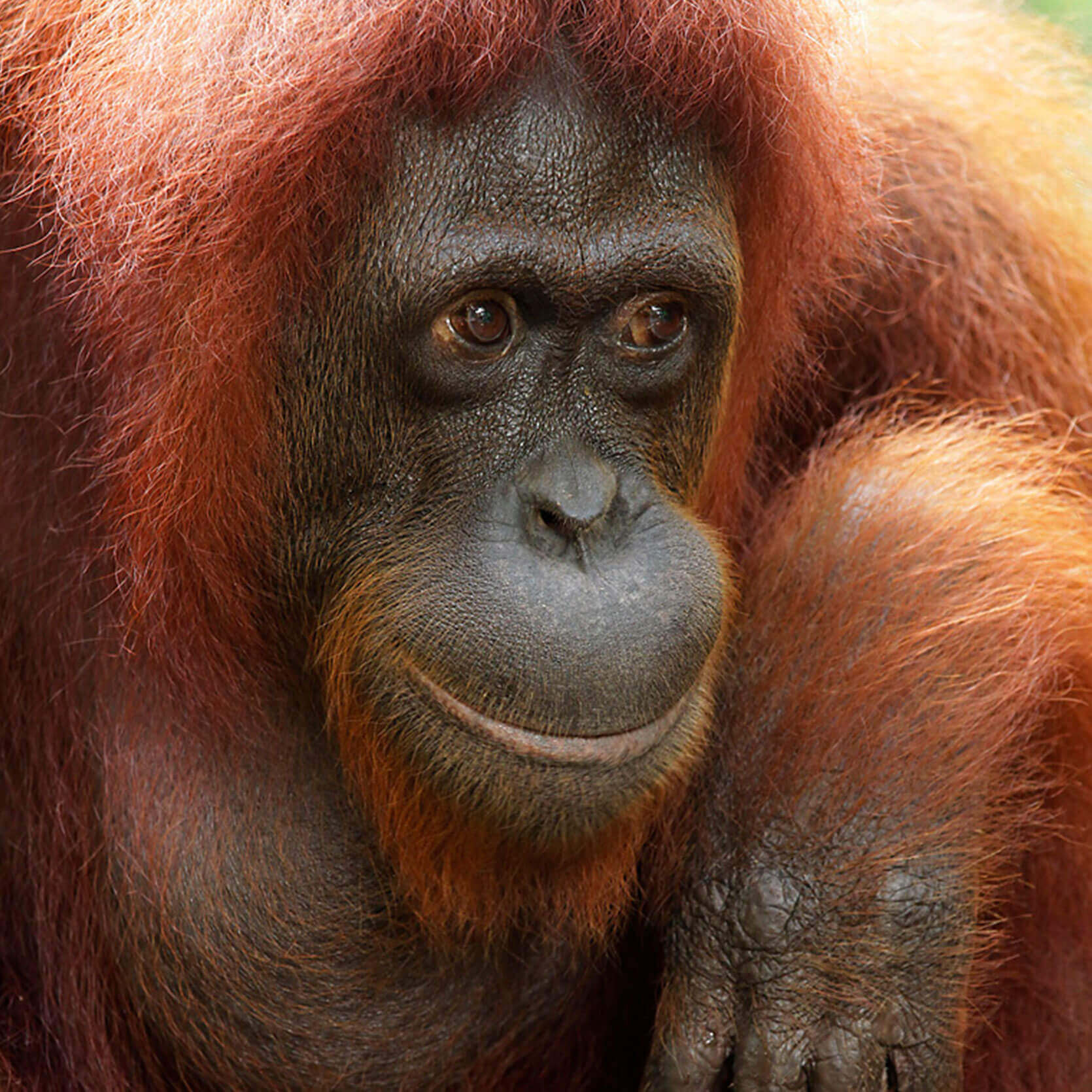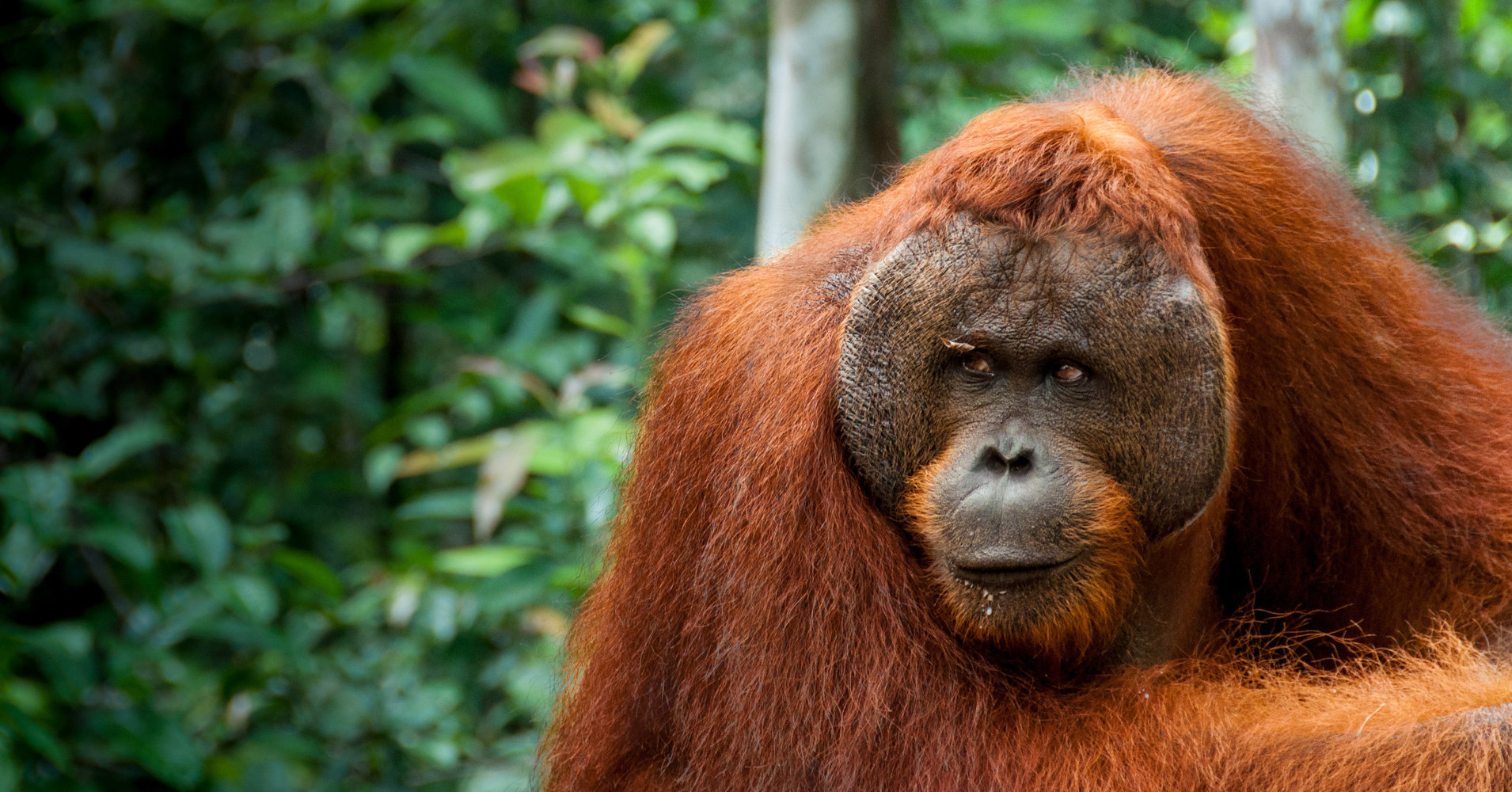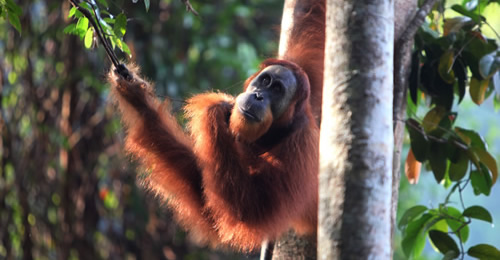THE ORANGUTAN
Background
The name orangutan means "man of the forest" in the Malay language. In the lowland forests in which they reside, orangutans live solitary existences. They feast on wild fruits like lychees, mangosteens, and figs, and slurp water from holes in trees. They make nests in trees of vegetation to sleep at night and rest during the day.
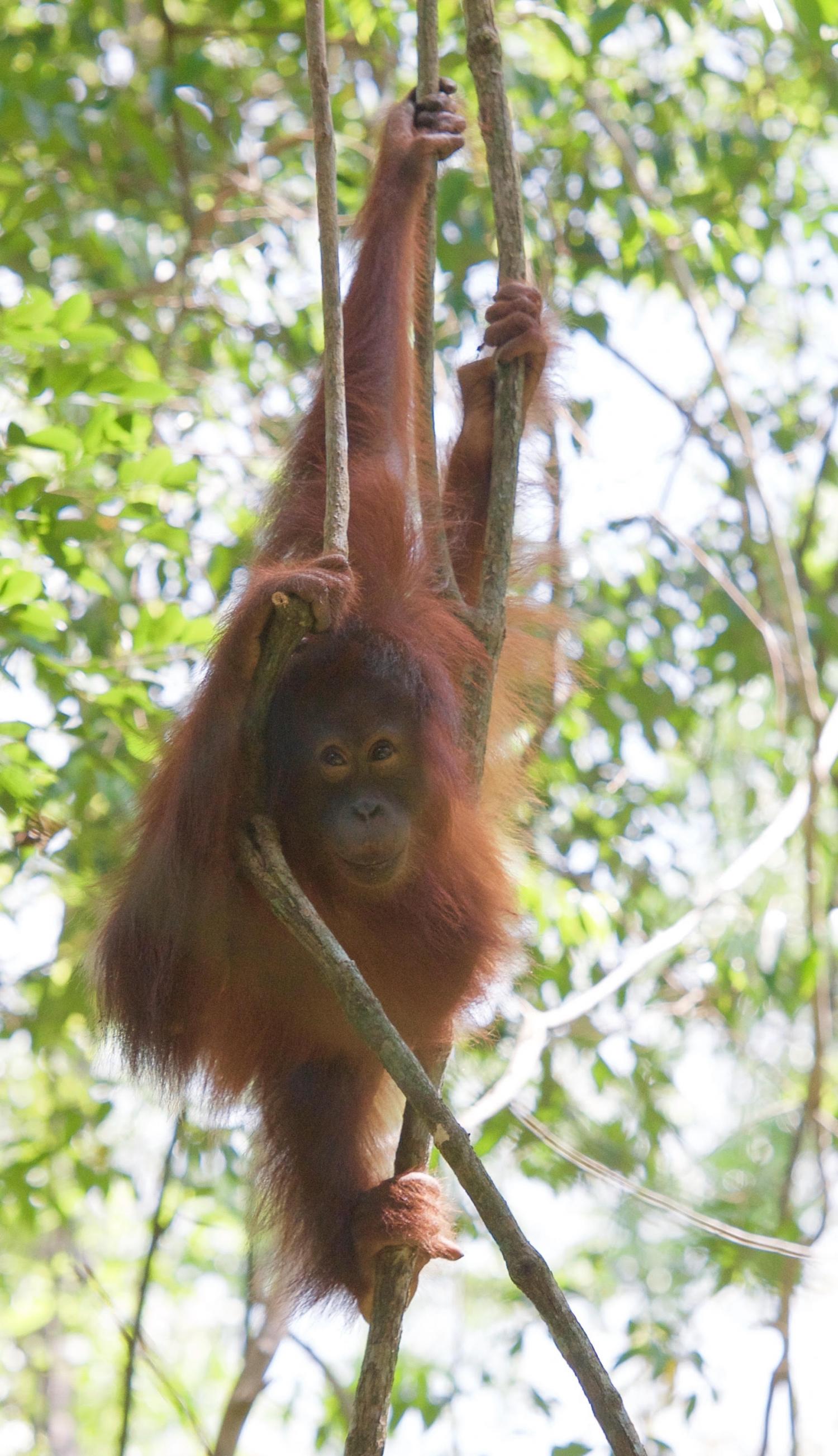
Adult male orangutans can weigh up to 200 pounds. Flanged males have prominent cheek pads called flanges and a throat sac used to make loud verbalizations called long calls. An unflanged male looks like an adult female. In a biological phenomenon unique among primates, an unflanged male can change to a flanged male for reasons that are not yet fully understood.
Population
At the Frankfurt Zoological Society’s Orangutan Rehabilitation Center, orangutans are rehabilitated and released back into the wild. Rescued orangutans learn how to feed and fend for themselves in the lowland rainforests of central Sumatra—skills they never had the chance to pick up from their mothers.
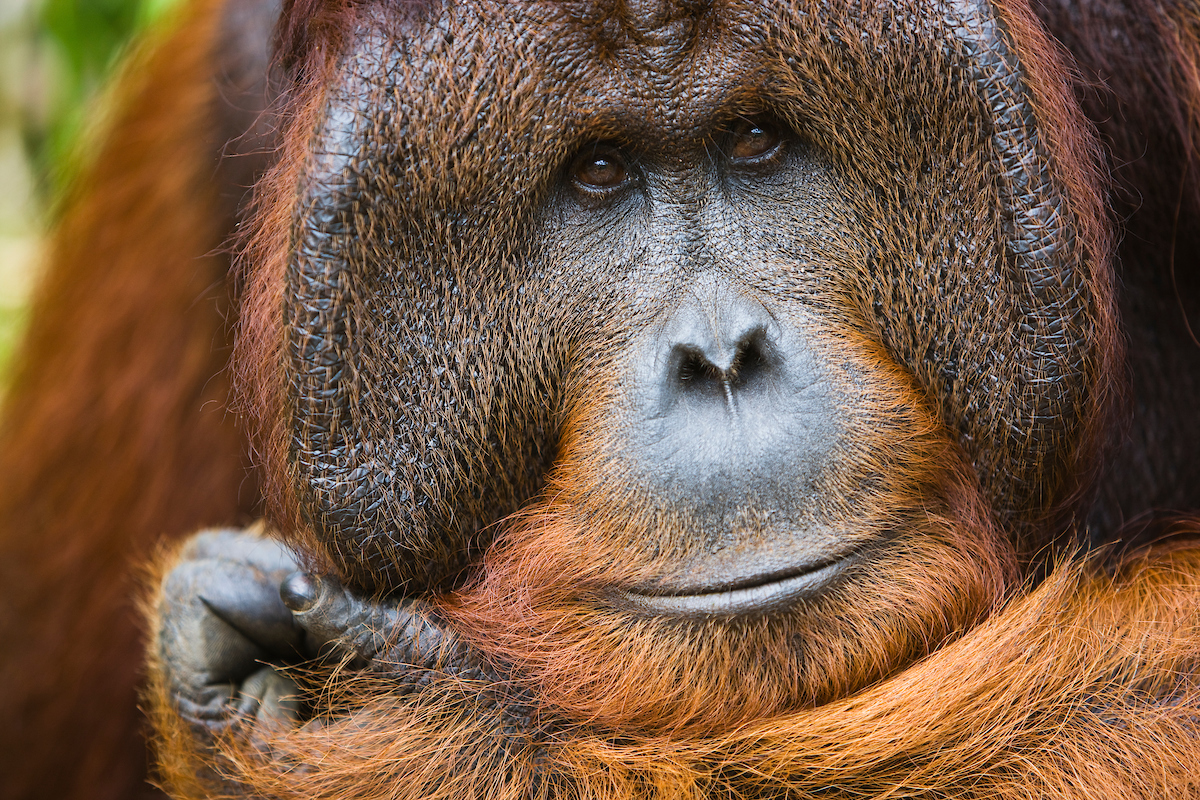
Bornean and Sumatran orangutans differ a little in appearance and behavior. While both have shaggy reddish fur, Sumatran orangutans have longer facial hair. Sumatran orangutans are reported to have closer social bonds than their Bornean cousins. Bornean orangutans are more likely to descend from the trees to move around on the ground.
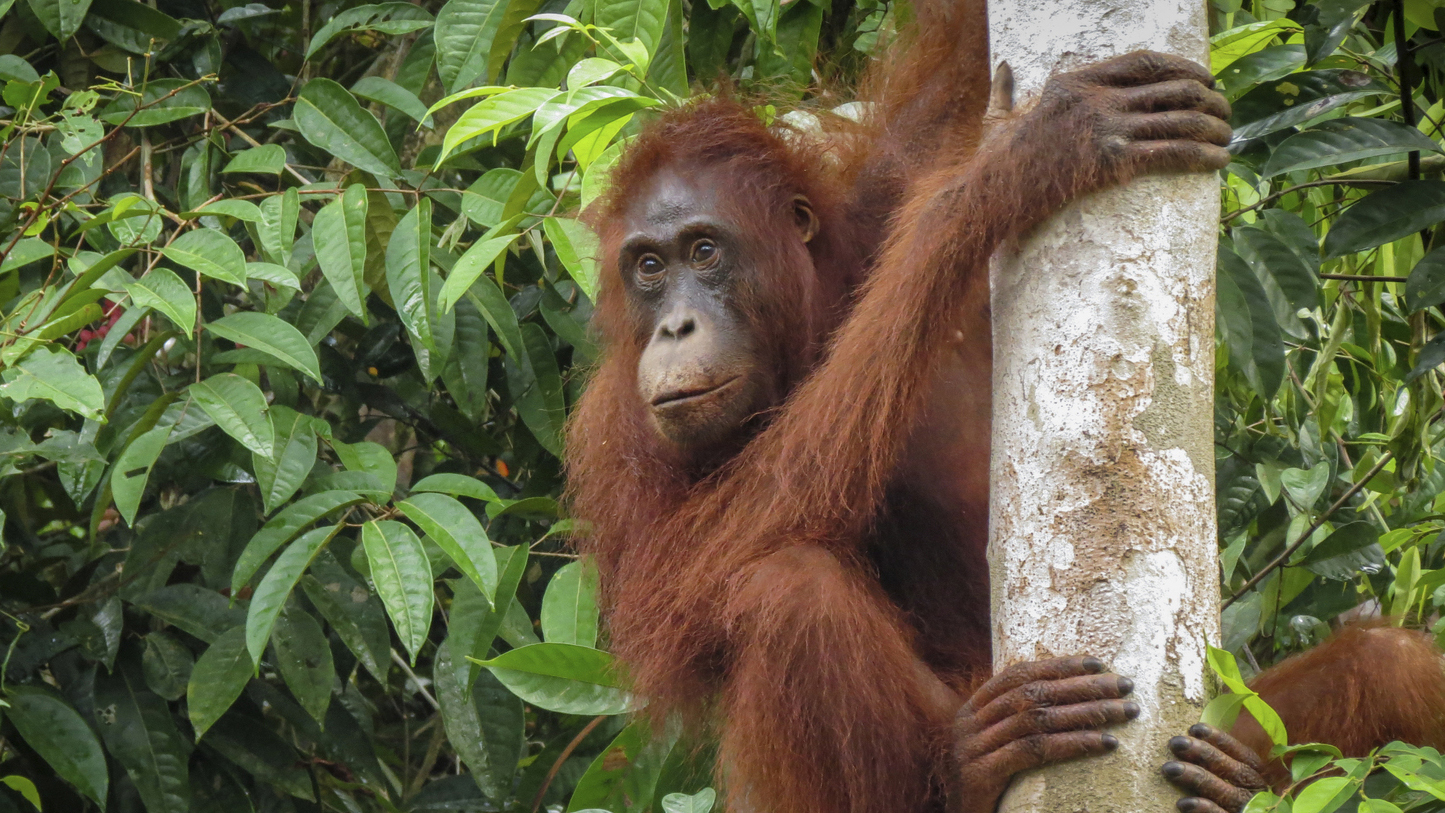
Both species have experienced sharp population declines. A century ago there were probably more than 230,000 orangutans in total, but the Bornean orangutan is now estimated at about 104,700 based on updated geographic range (Endangered) and the Sumatran about 7,500 (Critically Endangered).
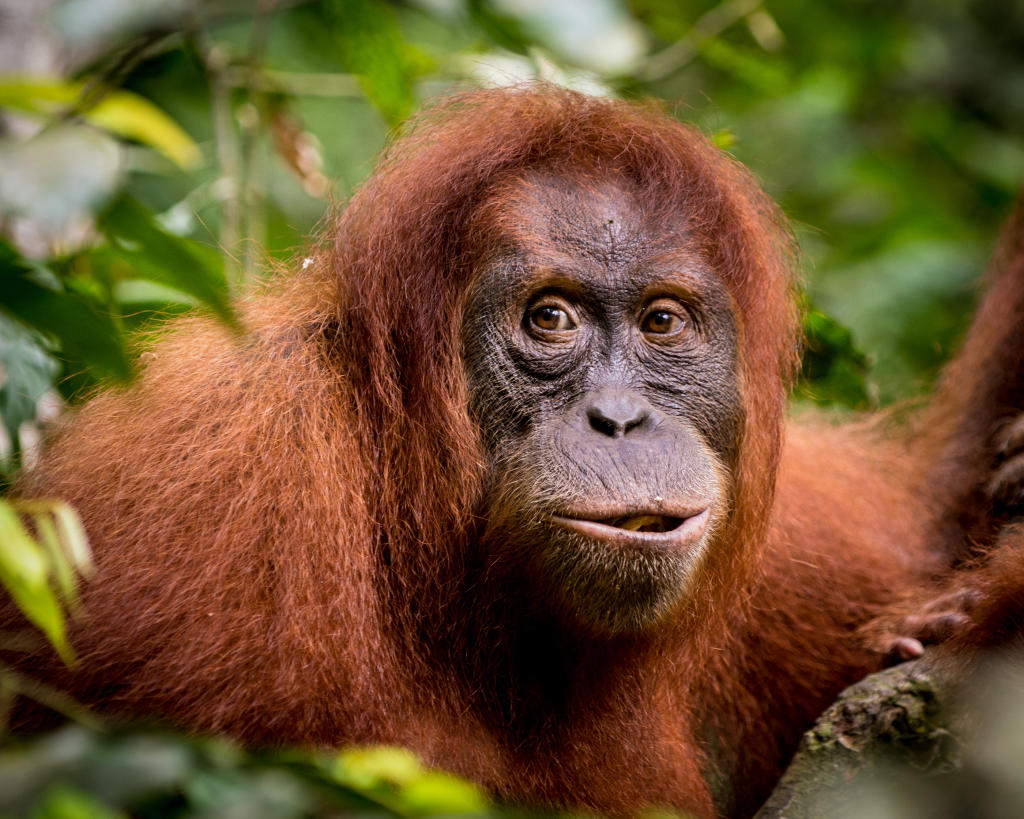
Endangered
What is causing their dramatic population decline? Quite simply, it is human activity. The rise of palm oil harvesting means that their rain forest home is cut down and replaced with monocrops of palm trees. Other industries such as mining, timber, and small-scale logging also damage their rain forest habitat. Just as in the United States when ranchers and wolves have conflict, farmers often kill orangutans when they come too close to their crops.
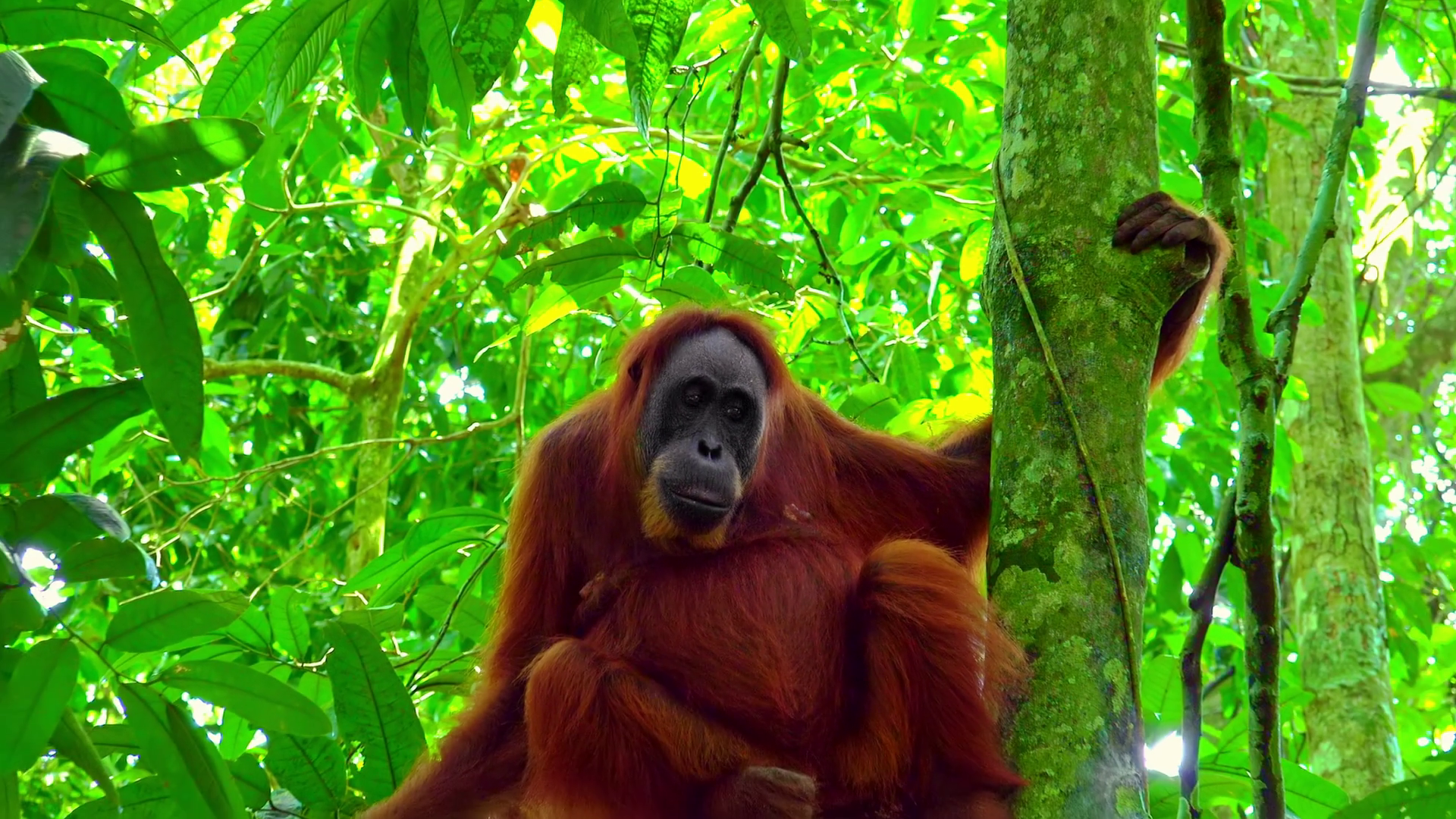
Palm oil is used in so many products now that it is here to stay, but your choices can make a difference. Choose products made from deforestation-free palm oil, and put pressure on companies that aren't responsibly sourcing their materials.
